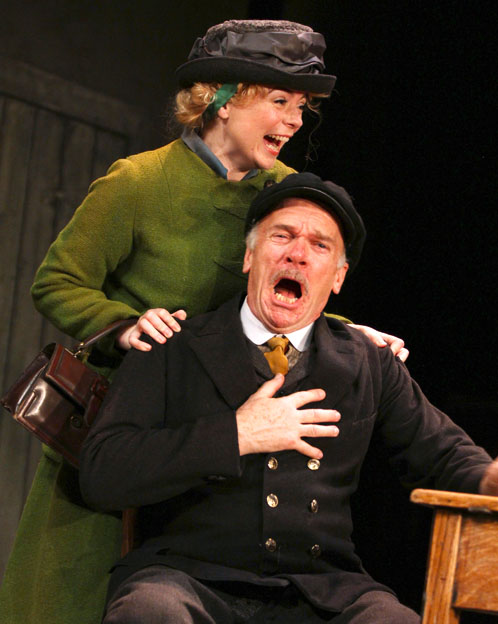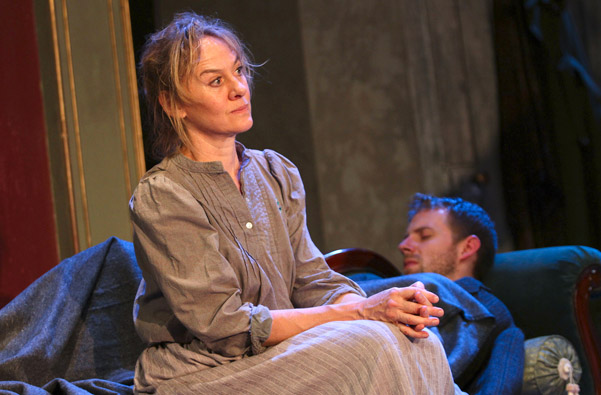I ‘d like to start with a small confession: as a student at drama school this play was the first public performance I was ever involved in. For my trouble I received a bollocking from the principal on account of my ‘over elaborate makeup’ and ‘trying to cram the whole meaning of the play’ into my one line (as the sewing machine salesman). Guilty. A salutary lesson nonetheless: I was there to serve the text – not the other way around. I mention this because last night’s cast, to a man and woman, deliver on O’Casey’s unselfconsciously jewelled, proletarian prose which raises the play above the poverty of its ‘Benefit Street’ realism.
The often (in lesser hands) stultifying minutiae of realism has been scooped up and thrown to the back of the stage in Conor Murphy’s ‘looks-as-if-a-bomb’s-hit-it’ set. If you didn’t know what the play was about before you came to the theatre the set gives you a pretty good clue: a not too genteel disintegration into a befuddled chaos. What’s left of the stage is stripped down to a few sticks of furniture, leaving director, Gemma Bodinetz, little to work with but the joy of the language and the talent of her cast. Happily both are in good supply and she guides her actors, carefully giving due weight to each thread without losing her central focus on the delusional indolence of Jack Boyle.
Like any great play Juno and the Paycock bites off only as much as it can chew, but O’Casey has a big appetite and along the way he brings in the unions, the troubles, the clergy, morality, idleness and drink. Des Mcaleer”s vaingloriously workshy, vigorous invalid, Jack Boyle at once surveys and embodies the state-of-the-republic examination of Irish society at a moment in history and the Boyle family’s decline is as tragic as it is predictable.
Where there’s drink there’s music and Peter Coyte’s score brings extra colour to proceedings and spills out into the scene changes, which are in themselves entertaining.
Interestingly, from nearly a century on and given that O’Casey has a pop at a handful of Irish shibboleths, marriage itself does not come under his gaze and although sex before marriage half raises its hand for attention there is little question that Juno will do anything other than stick by her man despite her protestations. Niamh Cusack literally and metaphorically rolls her sleeves up as the embodiment of long-suffering Irish womanhood in a role which comfortably extends her range well beyond that with which her TV audience will be familiar. Her final cri de coeur as a bereaved mother is one that has sadly echoed down the ages, but for all that retains its power to move. ★★★☆☆ Graham Wyles.
Production photos by Stephen Vaughan



